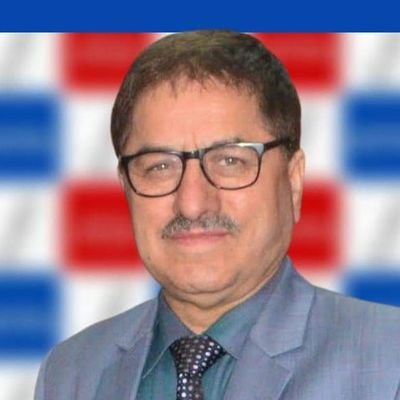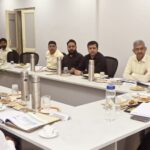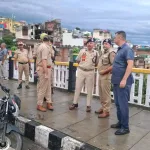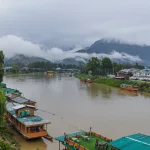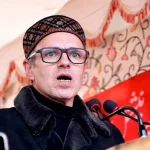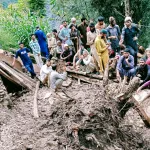Apni Party candidate for the Anantnag-Rajouri Parliamentary constituency, Zafar Iqbal Manhas in an exclusive interview with Rising Kashmir’s Reporter Younus Rashid said Jammu & Kashmir’s youth are facing extraordinary challenges and urged them to vote for a better future.
RK: What prompted your departure from the PDP?
Manhas: In May 2019, I left the PDP, and following the August 5th incident, I didn’t deem it necessary to formally announce my resignation from the party. In January 2020, a group of us met with the Governor to address various issues affecting the people, including youth struggling to obtain job clearances and individuals being unjustly detained. We considered meeting with the Deputy Commissioner (DC), pursuing legal avenues, and engaging with the Governor as reasonable actions. However, upon meeting the Governor, we were summarily expelled from the party without any opportunity to provide an explanation. I was among those expelled, and no explanation was provided. Later, we established the Apni Party in 2020, and I serve as the party’s vice President.
RK: What led to the formation of the Apni Party?
We aimed to address the people’s issues when the statehood was gone. I felt there was a need for a political party at that time, and within just one week, we took all the people’s issues to Delhi. Not as individuals, but all our party members. We held press conferences, met the Prime Minister, and the Home Minister – all in broad daylight.
We asked for job security for our youth, land security, and protection against demographic changes. We received some assurances for development. In politics, it’s all about serving the public welfare.”
RK: How do you perceive the role of a representative, especially in a place like J&K?
Manhas: I believe a representative is for all, and a representative should engage all communities and move forward together. Unfortunately, we have fragmented politics. A representative should earn votes based on merit, policies, and programs, rather than being centred with specific communities. We should not create rules based on communities, as it only serves to divide them. When elected, a representative should not solely represent a particular party. I do not view this through the lens of communities; instead, I believe a representative should only earn votes based on merit.
Unfortunately, here people, instead of presenting manifestos, divide votes. Sometimes they use religion, caste, or region to divide people. I do not support this approach.”
RK: What do you see as the major challenges faced by youth, how to address these challenges?
Youth for the last 30 years, they have been facing numerous challenges. Youth are sensitive, with a lot of emotions and passion, and when incidents like those in 1987 and 1990 occurred, such as rigging, it caused great disappointment among them. Some political leaders mistreated the youth, and some international countries instigated them, leading our youth to turn towards violence out of frustration, with the consequences evident today.
Our youth today are similarly frustrated, if not more so, but the difference is that now they are falling into depression and turning towards drugs, which is a dangerous trend. I honestly believe that regardless of party lines, we all must work together to uplift the youth from depression, implement job creation policies to provide employment opportunities, promote awareness about education, instill hope in them, and facilitate their engagement in private sector jobs.”
RK: What’s your take on rescheduling of poll dates?
Manhas: Its common sense, and those who see it as an issue are being ignorant. In the public interest, like in public interest litigation (PIL), what if these parties didn’t have a candidate in the fray for the Anantnag Rajouri parliamentary seat – but the people associated with them in the constituency, don’t they have the right to vote? Shouldn’t they be allowed to vote? If the public has the right to vote, then the candidate also has the right to reach out to them to convey their agenda.
Adverse weather conditions, landslides causing loss of lives, livestock, and road closures occurred, particularly throughout March and April, it was a general demand to postpone the elections.
Let me clarify once again, any person advocating for human rights or democratic rights can appeal for a demand. The Peoples Conference (PC) has conveyed their unconditional support to the Apni Party, and we have reciprocated, which makes us allies.
Additionally, the BJP has stated they will not support ‘dynastic politics’ and will obviously support other parties. If the BJP supports us, it should, because we both share a common goal of against dynastic politics. When we have this shared objective, we can establish a common minimum program or a meeting point. If they support us, we will welcome it.
RK: Is there any discussion happening between Apni Party and BJP?
Manhas: There is always ongoing discussion between political parties – politicians constantly meet, discuss various matters, and interact with each other. Even when we established the party, we met the Prime Minister openly during the day. BJP members are friends; many of them have been our colleagues in the Council.
RK: Any special message for the voters of the Anantnag-Rajouri Parliamentary seat?
Manhas: I generally don’t like giving messages, but I strongly believe that in the past 70 years, true democracy hasn’t been fully realized, nor has there been enough awareness about the importance of voting among the people. I believe every person should understand the significance of their vote. When people grasp the importance of voting, they will elect representatives who truly serve their interests. If people vote in favor of so-called ‘autonomy,’ which doesn’t exist, they are being misled. The National Conference (NC) has changed its stance from its 1953 position to autonomy and now to Article 370.
Article 370 no longer exists. We can only lament its loss. The NC and PDP lack the power to reinstate it; only Parliament, with its full authority, can do so. Neither the NC nor the PDP possess that courage.
My message to the people is not to fall into this trap. Instead, vote for development so that our education system improves, healthcare, electricity, and tourism receive a boost, and we create employment opportunities for our unemployed youth. Let’s also bolster our horticulture sector. Only through these measures can we build a new Kashmir.


